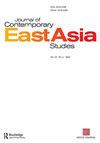中国回族穆斯林妇女生活方式的转变:现代教育与伊斯兰教育的比较
IF 1.4
Q1 AREA STUDIES
引用次数: 6
摘要
摘要本文旨在研究20世纪80年代后的现代化和全球化如何改变回族穆斯林妇女的职业选择、生活历程和生活方式。我讨论了从现代学校毕业并成为教师的回族穆斯林女性,并将她们与在义乌从事翻译工作的阿拉伯学校毕业生进行了比较。研究结果表明,回族女教师的命运因教育而发生了巨大的变化。他们生活在一个世俗的世界里,这个世界大多与宗教习俗无关。有必要调查他们的身份在未来会如何随着与汉族人的婚姻增加而改变。20世纪80年代后,宁夏建立了几所阿拉伯语学校。由于经济限制,阿拉伯语学校的许多学生无法继续上公立高中。从阿拉伯语学校毕业后,许多回族妇女在义乌做阿拉伯语翻译。在阿拉伯语学校学习扩大了年轻穆斯林妇女的机会,她们对家庭生活和工作都感到满意。他们要求宗教的满足感,他们的精神境界很高。在全球化的今天,中国的阿拉伯语学校正在发展具有新机遇的替代教育。本文章由计算机程序翻译,如有差异,请以英文原文为准。
The lifestyle transformation of Hui Muslim women in China: a comparison of modern and Islamic education
ABSTRACT The goal of this article is to study how modernization and globalization after the 1980s changed the career options, life course, and lifestyle of Hui Muslim women. I discuss Hui Muslim women who graduated from modern schools and became teachers, and compare them with graduates of Arabic schools who work in Yiwu as interpreters. The results suggest that the fate of Hui women teachers has changed drastically as a result of education. They are living in a secular world that is mostly unrelated to religious practices. There is a need to investigate how their identities will change in the future as marriages to the Han Chinese increase. Several Arabic schools were established after the 1980s in Ningxia. There are many students in Arabic schools who are not able to go on to public high school due to economic constraints. After graduating from Arabic school, many Hui women work as Arabic interpreters in Yiwu. Studying at Arabic schools expands the opportunities of young Muslim women and they are satisfied with both family life and work. They demand a sense of fulfillment from religion and their spirituality is high. Today, in an era of globalization, alternative education with new opportunities is developing through Arabic schools in China.
求助全文
通过发布文献求助,成功后即可免费获取论文全文。
去求助
来源期刊

Journal of Contemporary East Asia Studies
Social Sciences-Cultural Studies
CiteScore
2.50
自引率
0.00%
发文量
10
审稿时长
6 weeks
 求助内容:
求助内容: 应助结果提醒方式:
应助结果提醒方式:


